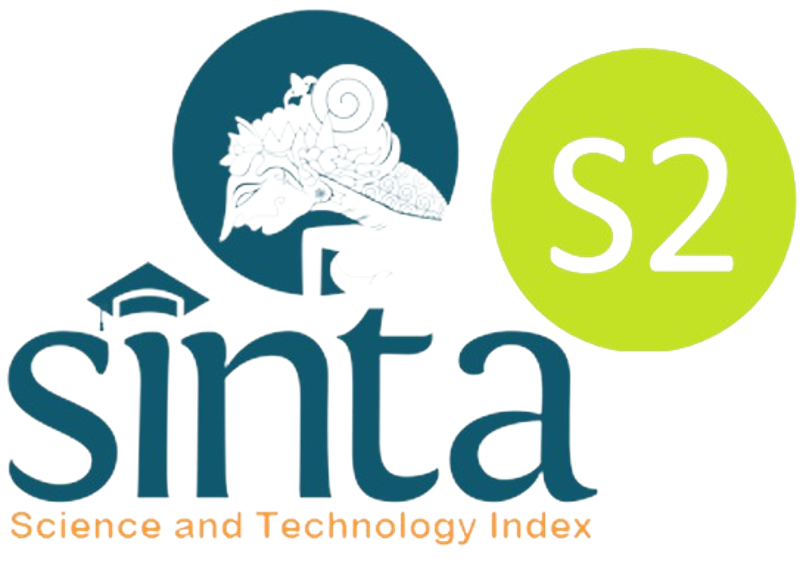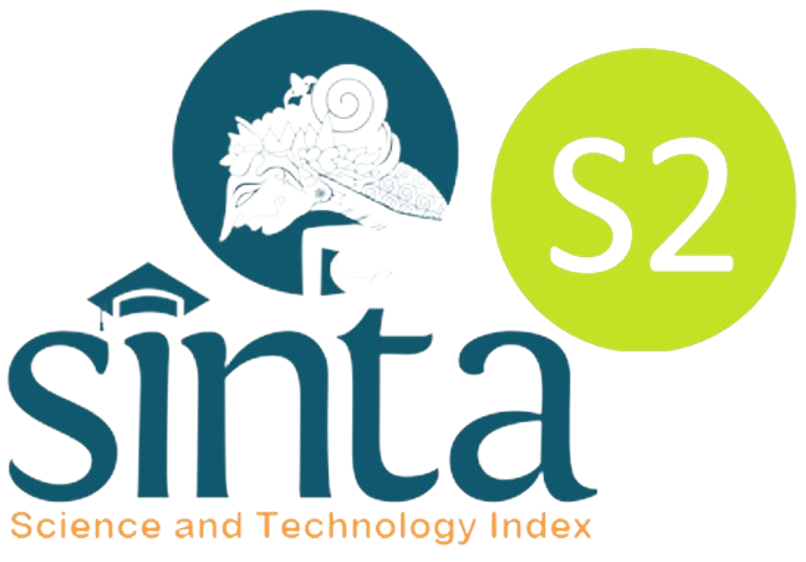Development of an E-Book Based on Local Wisdom of Fish Ponds in Gresik to Train Scientific Reasoning Skills
DOI:
https://doi.org/10.26740/jpps.v13n1.p1-15Keywords:
E-Book, Education, Local Wisdom, Fish pond, Scientific ReasoningAbstract
Objective: Scientific reasoning is one of the most essential skills in learning biology and can be trained by integrating local wisdom. The lack of learning media that facilitates student learning causes low students' scientific reasoning skills. The development of learning media that integrates local wisdom is needed to train students' scientific reasoning. Method: The e-Book development procedure uses the ASSURE model which consists of six stages namely (1) analyze learner characteristics, (2) state objectives, (3) select, modify or design media, (4) utilize media, (5) requires learner responses, dan (6) evaluate. Data collection was collected by validation, observation, tests, and student response questionnaires. The One-Group Pretest-Posttest Design was implemented at Muhammadiyah 10 High School Surabaya for the 2022/2023 school year. Results: The results showed that (1) the developed e-book was valid with an average validity value of 93%, (2) learning implementation was 92.5% at the first meeting, and 81% at the second meeting with the high category, (3 ) student learning outcomes in the scientific reasoning indicator increased to 88% in probabilistic reasoning, 82% in theoretical reasoning, 80% in correlation reasoning and 79% in proportional reasoning, as well as the n-Gain calculation results which with high criteria and (4) positive student responses to the use of e-books. So that the developed e-book is feasible to use in terms of local wisdom potential, e-book validity, practicality, and e-book effectiveness. Novelty: The development of an e-book on ecosystem material with the integration of local wisdom from fish ponds to train scientific reasoning skills has never been done before.Downloads
References
Amin, J. N. (2016). Redefining the Role of Teachers in the Digital Era. International Journal of Indian Psychology 3(3). https://doi.org/10.25215/0303.101
Arikunto, S., (2014). Prosedur Penelitian Suatu Pendekatan Praktik. Jakarta: Rinneka Cipta.
Askar, A. (2019). Interactive Ebooks as a Tool of Mobile Learning for Digital-Natives in Higher Education: Interactivity, Preferences, and Ownership. In: Proceedings of 42nd Association for Educational Communications and Technology. Las Vegas. https://members.aect.org/pdf/Proceedings/proceedings14/2014/14_02.pdf
Bao, L., Xiao, Y., Koenig, K., & Han, J. (2018). Validity evaluation of the Lawson classroom test of scientific reasoning. Physical Review Physics Education Research, 14(2). https://doi.org/10.1103/PhysRevPhysEducRes.14.020106
Dewi, N.P.S.R., Made Citra Wibawa, I., & Luh Pande Latria Devi, N. (2017). Kemampuan Berpikir Kritis Dan Keterampilan Proses Dalam Pembelajaran Siklus Belajar 7e Berbasis Kearifan Lokal. Jurnal Pendidikan Indonesia 6(1) https://doi.org/10.23887/jpi-undiksha.v6i1.9476
Hadi, W.P., Khamsatul Muharrami, L., & Sri Utami, D. (2021). Identifikasi Kemampuan Penalaran Ilmiah Berdasarkan Gender. Jurnal Matematika, Sains , dan Pembelajarannya. 15(2) https://doi.org/10.23887/wms.v15i2.34047
Hake, R. R. (1998). Analyzing Change/Gain Scores*. http://lists.asu.edu/cgi-bin/wa?A2=ind9903&L=aera-d&P=R6855
Huang, Y. H., Wu, P. H., & Chiang, H. C. (2018). Effects of problem-solving strategy based interactive e-book on measurement concepts. Proceeding of 1st International Conference on Innovative Technologies and Learning, ICITL 2018 - Portoroz, Slovenia https://doi.org/10.1007/978-3-319-99737-7_48
Karplus, R. (1977). Position Papers Science Teaching and The Development of Reasoning*. In Journal of Research In Science Teaching (Vol. 14, Issue 2).
Kemdikbud. Capaian Pembelajaran Mata Pelajaran Biologi Fase E-F. Diakses melalui https://kurikulum.kemdikbud.go.id/kurikulum-merdeka/capaian-pembelajaran
Khan, A.K., & Rana, A.R. (2021). Effect of Higher Order Thinking Instructional Model on Scientific Reasoning of Grade VIII Students. Bulletin of Educational and Research, 43(1) 77-92. https://files.eric.ed.gov/fulltext/EJ1320877.pdf
Meister, S., & Upmeier Zu Belzen, A. (2021). Analysis of data-based scientific reasoning from a product-based and a process-based perspective. Education Sciences, 11(10). https://doi.org/10.3390/educsci11100639
Mufaikah A. (2019). Pengaruh Metode Diskusi Berbantukan Media Audiovisual Terhadap Hasil Belajar Biologi Siswa Kelas VII MTS Makkaraeng. In Jurnal Binomial, 2(2). https://www.ejournals.umma.ac.id/index.php/binomial/article/view/285
Nurmilawati, M., & Rahmawati, I. (2021). Meningkatkan Keterampilan Argumentasi Dengan Menggunakan Metode Pembelajaran Diskusi Kelompok Berbasis Lesson Study. Proceeding of SEMDIKJAR (Seminar Nasional Pendidikan dan Pembelajaran. https://proceeding.unpkediri.ac.id/index.php/semdikjar/article/view/1500
Ramdani, A., & Wahab Jufri, A. (2021). Pelatihan Penggunaan Media Pembelajaran Berbasis Android Sebagai Sumber Belajar untuk Guru dan Peserta Didik. Jurnal Pengabdian Magister Pendidikan IPA, 4(4) https://doi.org/10.29303/jpmpi.v4i4.1026
Retnawati, Heri. (2016). Analisis Kuantitatif Instrumen Penelitian (Panduan Peneliti, Mahasiswa, dan Psikometrian). Parama Publishing.
Rusli, M., & Antonius, L. (2019). Meningkatkan Kognitif Siswa SMAN I Jambi Melalui Modul Berbasis E-Book Kvisoft Flipbook Maker. Jurnal Sistem Komputer Dan Informatika (JSON), 1(1), 59. https://doi.org/10.30865/json.v1i1.1397
Shofiyah, N., Fitria, D., & Wulandari, E. (2018). Model Problem Based Learning (PBL) dalam Melatih Scientific Reasoning Siswa. Jurnal Penelitian Pendidikan IPA 8(1) http://journal.unesa.ac.id/index.php/jppipa
Sudjono.(2017). Metode Penelitian Kuantitatif, Kualitatif, Dan R&D. Bandung: Alfabeta
Tosun, N. (2014). A Study on Reading Printed Books or E-Books: Reasons for Student-Teachers Preferences. In TOJET: The Turkish Online Journal of Educational Technology, 13(1). https://files.eric.ed.gov/fulltext/EJ1018172.pdf
Vaesen, K., & Houkes, W. (2021). A new framework for teaching scientific reasoning to students from application-oriented sciences. European Journal for Philosophy of Science, 11(2). https://doi.org/10.1007/s13194-021-00379-0
Wulandari, I., & Kunci, K. (2022). Model Pembelajaran Kooperatif Tipe STAD ( Student Teams Achievement Division) dalam Pembelajaran MI. In Jurnal Papeda 4(1).
Yediarani, R. D., Maison, M., & Syarkowi, A. (2019). Scientific Reasoning Abilities Profil of Junior High School Students in Jambi. Indonesian Journal of Science and Education, 3(1), 21. https://doi.org/10.31002/ijose.v3i1.627
Zlatkin-Troitschanskaia, O., Anand, H., Toepper, M., & Lautenbach, C. (2020). Student Learning in German Higher Education: Innovative Measurement Approaches and Research Results. Springer VS Wiesbaden. https://doi.org/10.1007/978-3-658-27886-1
Downloads
Published
How to Cite
Issue
Section
License
Copyright (c) 2023 JPPS (Jurnal Penelitian Pendidikan Sains)

This work is licensed under a Creative Commons Attribution-ShareAlike 4.0 International License.
 Abstract views: 369
,
Abstract views: 369
, PDF Downloads: 314
PDF Downloads: 314












